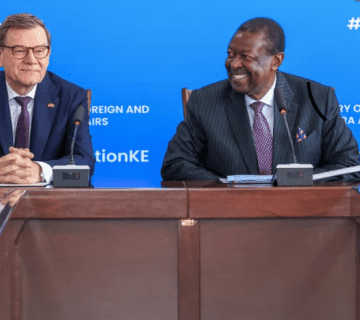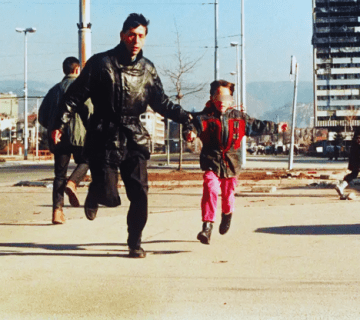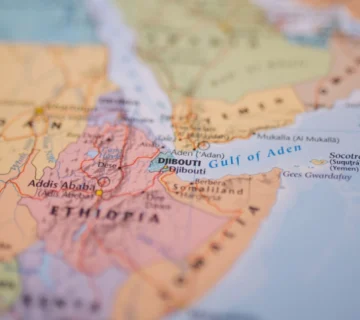Somalia is a chaotic place at the moment. President Mohamed Abdullahi Mohamed (Farmajo) is overstaying – intentionally or otherwise – his constitutionally mandated term that ended on February 8, 2021. Without firm parliamentary and presidential poll dates, there is no knowing how much longer he will be in office. In the meantime, the term extension and resultant illegitimacy are creating room for local, regional, and extra-regional actors to engage the Federal Government of Somalia (FGS), federal member states (FMSs), and political elites in ways that advance their interests. Although there are now plans to hold the national poll as soon as possible, the extended term has worsened the already poor relations between FGS and FMSs, and between FGS and Farmajo’s political opponents; disenfranchised citizens; and strained Somalia’s relations with other countries. As Somalia has swung unpredictably between “complete disorder and some sort of order” – according to economists Acemoglu and Robinson – some countries in the region have stayed hawk-eyed for possible ‘spill overs’ that may threaten their national interests. However, the delayed national poll is not the cause of political strife. Rather, it is symptomatic of and a response to the increasing tension between widely dispersed power and political centralization in Somalia. The key to unlocking the ongoing political strife therefore lies in reducing the power dispersal-political centralization tension. This is where stakeholders should be concentrating their efforts.
The Order-Disorder Swing
Somalia’s decentralized government system is envisaged as an accelerator of post-conflict reconstruction (including institution building) and development, with regular consultations to enhance synergy between the central government (FGS) and regional state governments (FMS). Until recently, when several summits were held in Dhusamareb (Galmudug state), FGS had largely overlooked consultations with FMSs. The lack of consultations in much of President’s Farmajo’s tenure has created tensions between the two levels of governments that have weakened FGS-FMS relations. Leaders of the FMSs of Puntland, South West, Hirshabelle, Galmudug, and Jubaland in particular have been sidelined by FGS and/or refused to participate in ‘forced’ consultations. Without synergy, accelerated reconstruction remains a pipe dream.
Amid these tensions, Somalia is democratizing. Ordinarily, democratic countries hold national elections to manage political transitions. Those that are timely, fair, and transparent are preferred, and delays such as Somalia’s 2020-2021 parliamentary and presidential ones are interpreted as attempts to hold on to power illegitimately. Farmajo has received bad press for a series of such delays since last year, failing to oversee the completion of Somalia’s new Constitution, and failing to establish a direct vote as was expected in his tenure. All the while, it is assumed that the conflict-prone country has established institutions that are capable of managing democratic transitions effectively. It is also known that democratic elections centralize politics.
In Somalia – where power distribution is ingrained, commonplace, and embedded in clannism – the idea of centralized politics goes counter to that of decentralized federal politics. Where power is centralized, a sufficiently powerful group of political elites take charge of state building. As has been witnessed in Somalia over several months now, the people of Somalia generally prefer power dispersal to centralized politics. Some of this has to do with the existence of clans. Clans, which are the primary basis of identity in Somalia, also ensure even power distribution; a clan cannot impose its will on another clan. Yet, without centralized politics, law and order are mirages, as exemplified by the continued presence of AMISOM, and the existence of al Shabab and other armed non-state actors in Somalia. Thus, the more stakeholders push for a democratic poll, the more the differences between power dispersal and political centralization become apparent. In the process, pluralists and power centralists stake their claims, confronting each other militarily in Mogadishu, Gedo region, and elsewhere in the country. To complicate matters, foreign actors are increasingly pushing for the implementation of the September 2020 Agreement. Somalia then swings faster from order to some sort of order to disorder, and back. In between the swings, Somalia debates the importance of democratic polls, discusses the merits of clan-based, direct, or indirect elections, and seeks a negotiated solution to the political crisis. However, the longer the debates and negotiations last, the more the polls are delayed. The longer the delay, the more agitated Farmajo’s critics – particularly those opposed to term extension – become. And the deeper Somalia’s political crisis gets.
Ending Political Strife
Efforts to democratize Somalia – including insistence on the holding of elections that are timely and credible – are laudable. However, democratizing a war-afflicted and clan-based nation requires sufficient time. Similarly, democratization should be undertaken with understanding that timely and credible polls are unsustainable in an environment where widely dispersed power is the norm, and – more importantly – is in opposition with the political centralization signaled by democratic polls. To end the ongoing political strife, stakeholders need to return to the drawing board to figure out how to reduce the power dispersal-political centralization tension that is exacerbating political strife in Somalia. In addition to encouraging more dialogue between FGS and FMSs, a system of election that narrows but does not erode power dispersion, or force political centralization down Somalia’s throat unsustainably could be explored. Such a system could build on the September 2020 Agreement, but allow the incumbent some room to propose a new end-of-extended-term exit date that is not unduly prolonged and is acceptable to stakeholders. Neighboring countries and Somalia’s allies could be enjoined in the process as peace guarantors, arrangements such as AMISOM’s stabilization of Somalia notwithstanding. When the presidential poll is finally held, Farmajo may remain in power for a second term, or be replaced. Whichever way, Somalia will stabilize politically once the said tension is addressed sufficiently and in an inclusive manner.
Roselyne Omondi is Associate Director, Research, at the HORN Institute
Photo: Unidentified woman carries Somalia’s national flag at a past function (Photo Credit: AMISOM Public Information/Flickr)
The contents of this article are copyright of © The HORN Institute 2022. All rights reserved. Any redistribution or reproduction of part or all of the contents in any form and for whatever reason is prohibited. You may use the content of this article for personal reasons, but acknowledge the website as the source of the material.



